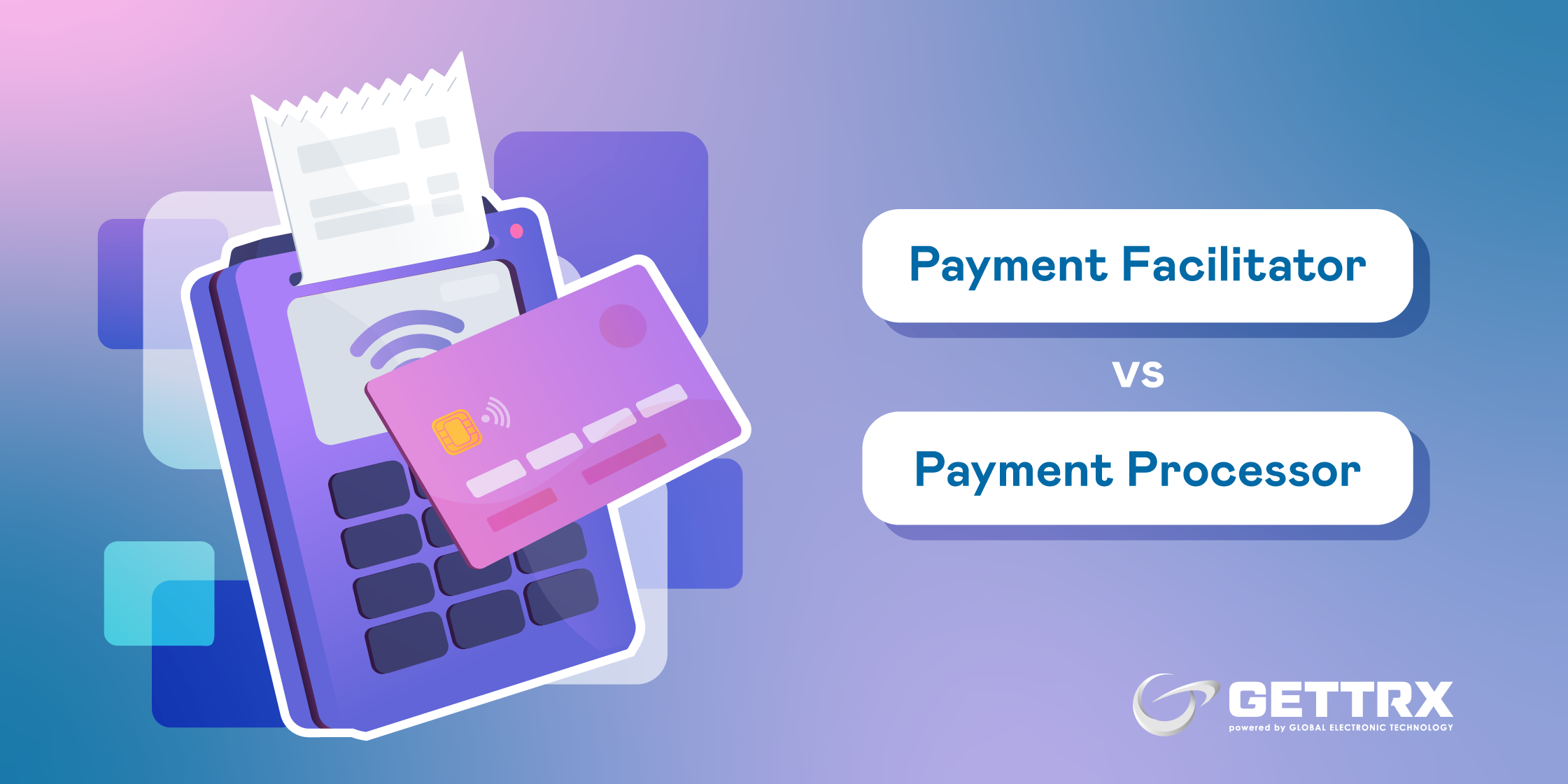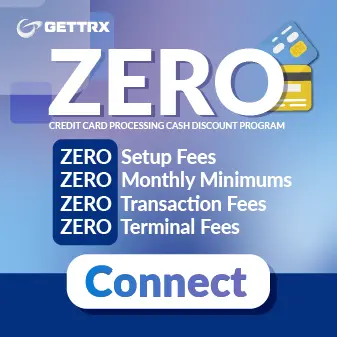In this article, we’ll attempt to cover almost everything you need to decide which payment solution is right for you: a Payment Facilitator or a Payment Processor.
While both services provide the same basic functions, there are distinct differences in how each handles payments and account management.
Payment Facilitators typically have a more user-friendly approach, allowing merchants to quickly and easily add payment processing capabilities to their businesses.
Payment Processors often require a more robust infrastructure but can provide more features like fraud protection, data security, and dispute resolution.
How do you choose between the two?
Key Takeaways
- Payment facilitators (PayFacs) simplify payment processing for small and medium-sized businesses by aggregating multiple merchants under one master account.
- Payment processors handle the actual processing of transactions between merchants, customers, and financial institutions.
- PayFacs offer a more comprehensive suite of services, including underwriting, transaction monitoring, and chargeback management, while payment processors focus primarily on processing transactions and ensuring compliance.
- When choosing a payment solution, factors include business size, transaction volume, industry requirements, geographical reach, scalability, and ease of integration with existing systems.
- The choice between a PayFac and a payment processor depends on your business needs, industry, and desired level of support.
- GETTRX’s Zero and Flat Rate packages offer transparent billing, competitive rates, and industry-leading customer service, making them ideal choices for businesses seeking a seamless payment experience.
Table of Contents
- What is a Payment Facilitator?
- Functions of a Payment Facilitator
- What Is a Payment Processor?
- Roles of a Payment Processor
- Payment Facilitator vs. Payment Processor: Key Differences
- Factors to Consider When Choosing a Solution
- The Bottom Line: Choosing Between a Payment Facilitator and Payment Processor
- Payment Facilitator Vs. Payment Processor FAQ
- Conclusion: Why Choose GETTRX Zero?
What is a Payment Facilitator?
A payment facilitator (PayFac) is a company that simplifies the process of accepting payments for businesses, particularly small and medium-sized enterprises (SMEs).
By aggregating multiple merchants under one master account, PayFacs allow these businesses to accept payments without establishing their merchant accounts.
This model simplifies the onboarding process, reduces time-to-market, and offers a more user-friendly experience for both merchants and customers.
PayFacs typically offer a comprehensive suite of services, including underwriting, transaction monitoring, fraud protection, chargeback management, and dispute resolution.
Functions of a Payment Facilitator
Payment facilitators offer a comprehensive suite of services to simplify payment processing for small and medium-sized businesses. Some of which include:
I. Underwriting and Onboarding
One of the main functions of a payment facilitator is to handle the underwriting and onboarding process for merchants. Underwriting involves evaluating the risk associated with each merchant before allowing them to use PayFac’s services.
PayFacs streamline the onboarding process, enabling businesses to start accepting payments from their customers quickly.
For instance, a small e-commerce store can quickly set up an account with a PayFac like Square or Stripe, and accept payments within hours instead of the long process of setting up a dedicated merchant account.
II. Transaction Monitoring
Payment facilitators are responsible for monitoring transactions to identify and mitigate fraudulent activities, ensuring the security of both merchants and customers.
By implementing advanced fraud detection systems, PayFacs can flag suspicious transactions and notify merchants in real-time, allowing them to take appropriate action.
For example, if a PayFac detects multiple transactions from the same IP address quickly, it could indicate potential fraud, prompting the merchant to investigate and take necessary precautions.
III. Merchant Funding
After processing transactions, payment facilitators manage the funds transfer from customers to merchants. This process, known as merchant funding, enables businesses to receive payments quickly, improving their cash flow and financial stability.
In most cases, PayFacs offer faster funding compared to traditional payment processors, with some even offering next-day funding for eligible merchants.
IV. Chargeback Management
Chargebacks are inevitable in accepting payments and managing them can be complex and time-consuming.
Payment facilitators offer support in chargeback disputes by providing resources, tools, and guidance to help merchants navigate and minimize chargebacks.
For instance, a PayFac may offer a chargeback management portal where merchants can view, track, and respond to chargeback disputes, simplifying the entire process.
V. Customer Support
Payment facilitators typically provide dedicated customer support to assist merchants with any issues or concerns they may encounter.
This support can include troubleshooting technical problems, addressing account-related inquiries, and offering guidance on best payment management practices.
By offering reliable and responsive customer service, PayFacs enhance the overall experience for their merchants.
VI. Integration and Compatibility
Payment facilitators often integrate with various eCommerce platforms, point of sale (POS) systems, and accounting software to make it easier for merchants to manage their businesses.
These integrations allow merchants to streamline their payment processing, inventory management, and financial reporting, resulting in a more efficient and seamless workflow.
For example, GETTRX easily integrates with popular eCommerce platforms like Shopify or Magento, allowing merchants to accept payments through their online store.
VII. Data Security
Data security has become a crucial concern for businesses and customers as the digital landscape evolves.
Payment facilitators implement advanced security measures, such as tokenization and encryption, to protect sensitive customer data and ensure secure transactions.
By adhering to industry standards like the Payment Card Industry Data Security Standard (PCI DSS), PayFacs demonstrate its commitment to maintaining a secure payment environment.
What Is a Payment Processor?
A payment processor is a company that handles the actual processing of transactions between merchants, customers, and financial institutions.
They facilitate the transfer of funds between customer and merchant accounts, ensuring that payments are securely and accurately processed.
Payment processors work with various payment methods, including credit cards, debit cards, and digital wallets.
Some popular payment processors in the market include First Data, Worldpay, and TSYS. These payment processors are used by businesses of all sizes and in various industries, including retail, hospitality, healthcare, and eCommerce.
Payment processing companies provide various services to businesses, including processing transactions, managing merchant accounts, and protecting customer data.
Overall, payment processors play an essential role in the payment system, as they enable merchants to accept payments quickly and securely.
Roles of a Payment Processor
I. Payment Processing and Settlement
The primary role of a payment processor is to handle the authorization, clearing, and settlement of transactions.
When a customer makes a purchase, the payment processor verifies the transaction details, checks the availability of funds in the customer’s account, and confirms the transaction.
After authorization, the payment processor ensures that funds are transferred from the customer’s account to the merchant’s account, completing the settlement process. This process ensures that merchants receive payments securely and accurately for each transaction.
II. Risk Management
Payment processors are vital in managing risk by implementing fraud detection and prevention measures. They use advanced algorithms and data analysis tools to identify and mitigate fraudulent activities, protecting merchants and customers.
By constantly monitoring transactions and flagging suspicious activities, payment processors help minimize the risk of fraudulent transactions and chargebacks.
III. Compliance and Regulatory Support
To ensure secure payment environments and protect sensitive cardholder data, payment processors help merchants meet compliance requirements, such as the Payment Card Industry Data Security Standard (PCI DSS).
They provide tools, resources, and guidance to help merchants maintain compliance and safeguard customer information. Payment processors are committed to maintaining a secure and trustworthy payment ecosystem by adhering to industry standards and regulations.
IV. Merchant Account Management
Payment processors assist merchants in managing their accounts, providing transaction reporting, reconciliation, and dispute management services.
They enable merchants to monitor their sales, review transaction details, and manage their accounts efficiently. This level of support helps businesses streamline their operations and make informed decisions about their payment processing strategy.
V. Reporting and Analytics
Payment processors offer robust reporting and analytics tools to help merchants gain insights into their sales, customer behavior, and overall business performance.
These tools enable merchants to track key performance indicators (KPIs), identify trends, and make data-driven decisions to optimize their businesses. Payment processors empower enterprises to improve their sales strategies and enhance customer experiences.
VI. Fraud Prevention and Security Measures
In addition to risk management, payment processors implement advanced security measures to protect sensitive customer data and ensure secure transactions.
Technologies such as tokenization and encryption are employed to safeguard cardholder information during the transaction process. Payment processors also maintain secure networks and infrastructure to minimize the risk of data breaches and cyberattacks.
VII. Integration and Compatibility
Payment processors often integrate with various eCommerce platforms, point of sale (POS) systems, and accounting software to make it easier for businesses to manage their payment processing.
These integrations allow seamless data flow between systems, simplifying payment processing, inventory management, and financial reporting.
Payment Facilitator vs. Payment Processor: Key Differences
| Category | Payment Facilitator | Payment Processor |
| Electronic Payment Cycle | Simplifies process by aggregating multiple merchants | Handles actual processing of transactions, works with financial institutions |
| Compliance, Risk Management, and Payment Support | Provides underwriting, transaction monitoring, chargeback management | Focuses on processing transactions, ensuring compliance with industry standards |
| Onboarding Process and Timelines | Streamlines onboarding, allowing merchants to accept payments more quickly | A more time-consuming process, setting up a dedicated merchant account |
| Payment Methods and Currencies Supported | Wide range, depends on specific provider | Wide range, depends on specific provider |
| Fee Structures and Pricing Models | Flat fee per transaction | Complex fee structure, various fees for different services and transaction types |
| Scalability and Business Size | Well-suited for small and medium-sized businesses | Better for larger businesses with higher transaction volumes |
| Integration and Customization | Often provides easy-to-use APIs, user-friendly interfaces | It may require more advanced integration and customization |
| Customer Support | May offer more comprehensive support due to broader service offerings | May focus on support for transaction processing and compliance |
| Security and Fraud Protection | Implements security measures but may share responsibility with payment processor | Ensures transaction security, fraud prevention, and adherence to industry standards |
| Example: GETTRX Zero and Flat Rate Package | $29/month fee for Zero, eliminates other processing fees | Flat Rate package with a fee of 2.79% + $0.30 per transaction |
| Relationship between Merchants, Payment Facilitators, and Payment Processors | Acts as intermediary between merchants and payment processors | Works directly with merchants and financial institutions |
Factors to Consider When Choosing a Solution
- Business size and transaction volume: Smaller businesses with lower transaction volumes may find PayFacs more suitable due to their simplified onboarding process and flat fee structures. Larger businesses with higher transaction volumes may benefit from a dedicated merchant account with a payment processor, as they offer more competitive rates and tailored services.
- Industry-specific requirements and regulations: Certain industries may have specific requirements or rules that must be met, which could influence the choice between a PayFac and a payment processor.
- Geographical reach and international transactions: If your business operates in multiple countries or deals with international transactions, ensure that your chosen payment solution supports the necessary currencies and payment methods.
- Scalability and future growth plans: Consider how your business may evolve over time and whether your chosen payment solution can support your growth and expansion plans.
- Ease of integration with existing systems: Ensure that your chosen payment solution can seamlessly integrate with your existing eCommerce platform, POS system, and accounting software.
- Customer support and responsiveness: Choose a payment solution that offers reliable and responsive customer support, like GETTRX’s industry-leading customer service, to help resolve any issues that may arise.
The Bottom Line: Choosing Between a Payment Facilitator and Payment Processor
Ultimately, the decision between a PayFac and a payment processor depends on your business needs, industry, and desired level of support.
By considering factors such as business size, transaction volume, industry requirements, and scalability, you can make the most informed choice for your company.
Also, remember the importance of transparent billing, competitive rates, and excellent customer service, like those offered by GETTRX’s Zero and Flat Rate packages, to ensure the best possible experience for you and your customers.
Payment Facilitator Vs. Payment Processor FAQ
Is a payment facilitator the same as a payment gateway?
No, a payment facilitator acts as an intermediary between merchants and payment processors, while a payment gateway is a service that authorizes and processes transactions between a merchant’s website or POS system and the payment processor.
What is the difference between a PSP and a payment facilitator?
A PSP (Payment Service Provider) is a broader term encompassing payment facilitators and payment processors, offering merchants a range of payment services.
What does an ISO do in payment processing?
An ISO (Independent Sales Organization) is a third-party company that partners with payment processors to market and sell their services to merchants. They typically provide sales, customer support, and technical assistance.
What is the difference between an ISO and a payment facilitator?
An ISO is a sales partner for payment processors, while a payment facilitator offers payment processing services to merchants by aggregating them under one master account.
Can I switch from a payment facilitator to a payment processor?
Yes, businesses can switch between payment facilitators and processors as their needs change. This may involve terminating the existing agreement with the payment facilitator and signing a new contract with the payment processor.
How do I choose between a payment facilitator and a payment processor?
Consider factors such as business size, transaction volume, required payment methods and currencies, fee structures, and the level of support and customization needed. Payment facilitators may be more suitable for small businesses, while payment processors may cater better to larger businesses with higher transaction volumes.
Are there any risks associated with using a payment facilitator?
While payment facilitators simplify the payment process for small businesses, they may also introduce risks such as shared liability for chargebacks and fraud and potential account termination if the facilitator faces regulatory or compliance issues.
How do I know if a payment facilitator or processor is secure?
Look for providers that adhere to industry security standards, such as PCI DSS (Payment Card Industry Data Security Standard), and offer additional security features like tokenization, encryption, and fraud protection tools.
Conclusion: Why Choose GETTRX Zero?
- Comprehensive suite of services: GETTRX Zero offers a wide range of services, including underwriting, transaction monitoring, fraud protection, chargeback management, and dispute resolution to ensure a seamless payment experience for your business.
- Faster funding: Our next-day funding option for eligible merchants means you can receive payments quickly, improving your cash flow and financial stability.
- Industry-leading customer service: Our dedicated customer support team is here to assist you with any issues or inquiries, ensuring you have reliable and responsive support when needed.
- Seamless integration: MoneyRate easily integrates with popular eCommerce platforms, point of sale (POS) systems, and accounting software, allowing you to streamline payment processing, inventory management, and financial reporting.
- Data security: We prioritize protecting sensitive customer data and adhere to industry standards like the Payment Card Industry Data Security Standard (PCI DSS), ensuring a secure payment environment for your business and customers.
Whether you’re a small or medium-sized business, our services are designed to meet your needs. Don’t settle for a one-size-fits-all solution. Choose GETTRX Zero for a tailored payment solution that fits your business requirements.
Contact us now to get started and experience the GETTRX advantage!
For more information on Payment Facilitator, check out these resources: Payment Facilitator vs Payment Aggregator & what to know about Payment Facilitators







